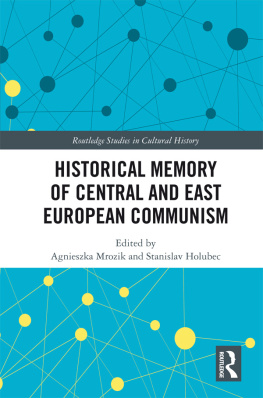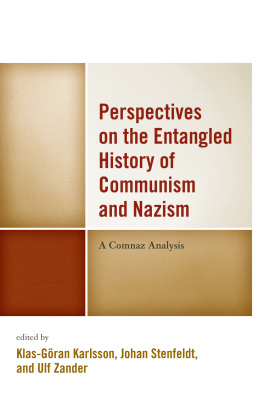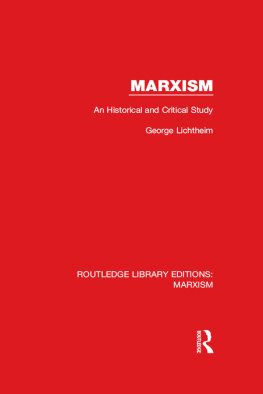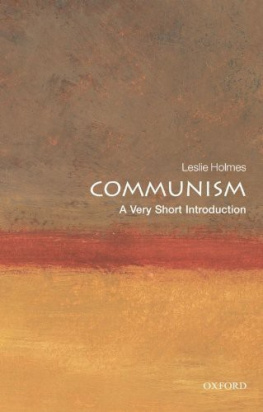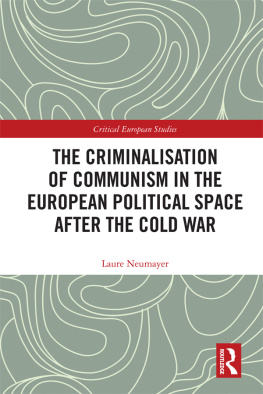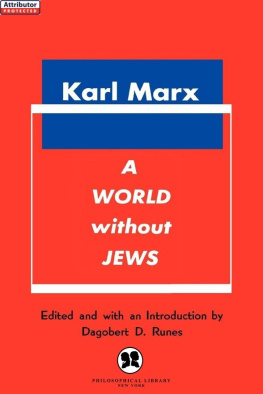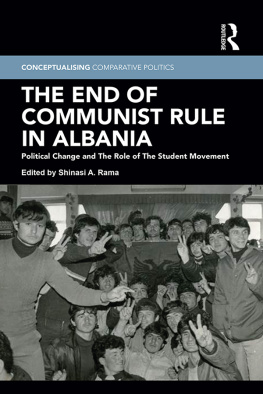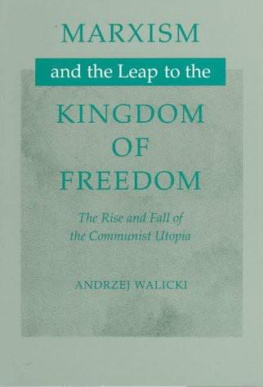Historical Memory of Central and East European Communism
Every political movement creates its own historical memory. The communist movement, though originally oriented toward the future, was no exception: The theory of human history constitutes a substantial part of Karl Marxs and Friedrich Engelss writings, and the movement inspired by them very soon developed its own strong historical identity, combining the Marxist theory of history with the movements victorious milestones such as the October Revolution and later the Great Patriotic War, which served as communist legitimization myths throughout almost the entire twentieth century. During the Stalinist period, however, the movements history became strongly reinterpreted to suit Joseph Stalins political goals. After 1956, this reinterpretation lost most of its legitimating power and instead began to be a burden. The (unwanted) memory of Stalinism and subsequent examples of violence (the Gulag, Katyn, the 1956 Budapest uprising and the 1968 Prague Spring) contributed to the crisis of Eastern European state socialism in the late 1980s and led to attempts at reformulating or even rejecting communist self-identity. This books first section analyzes the post-1989 memory of communism and state socialism and the self-identity of the Eastern and Western European left. The second section examines the state socialist and post-socialist memorial landscapes in the former German Democratic Republic, Czechoslovakia/Czech Republic, Poland, Lithuania, Ukraine and Russia. The final section concentrates on the narratives the movement established, when in power, about its own past, with the examples of the Soviet Union, Poland, Romania and Czechoslovakia.
Agnieszka Mrozik is Assistant Professor at the Institute of Literary Research of the Polish Academy of Sciences.
Stanislav Holubec is Associate Professor at the University of esk Budjovice and University of Hradec Krlov, Czech Republic.
Routledge Studies in Cultural History
The Romantic Idea of the Golden Age in Friedrich Schlegels Philosophy of History
Asko Nivala
Student Revolt, City, and Society in Europe
From the Middle Ages to the Present
Edited by Pieter Dhondt and Elizabethanne Boran
Respectability as Moral Map and Public Discourse in the Nineteenth Century
Woodruff D. Smith
The British Anti-Psychiatrists
From Institutional Psychiatry to the Counter-Culture, 19601971
Oisn Wall
Cultural Histories of Crime in Denmark, 1500 to 2000
Edited by Tyge Krogh, Louise Nyholm Kallestrup and Claus Bundgrd Christensen
Fascism and the Masses
The Revolt Against the Last Humans, 18481945
Ishay Landa
The Irish and the Origins of American Popular Culture
Christopher Dowd
The Medieval and Early Modern Garden in Britain
Enclosure and Transformation, c. 12001750
Edited by Patricia Skinner and Theresa Tyers
Historical Memory of Central and East European Communism
Edited by Agnieszka Mrozik and Stanislav Holubec
For more information about this series, please visit: www.routledge.com/Routledge-Studies-in-Cultural-History/book-series/SE0367
Historical Memory of Central and East European Communism
Edited by Agnieszka Mrozik and Stanislav Holubec

First published 2018
by Routledge
711 Third Avenue, New York, NY 10017
and by Routledge
2 Park Square, Milton Park, Abingdon, Oxon OX14 4RN
Routledge is an imprint of the Taylor & Francis Group, an informa business
2018 Taylor & Francis
The right of the editors to be identified as the authors of the editorial material, and of the authors for their individual chapters, has been asserted in accordance with sections 77 and 78 of the Copyright, Designs and Patents Act 1988.
All rights reserved. No part of this book may be reprinted or reproduced or utilized in any form or by any electronic, mechanical, or other means, now known or hereafter invented, including photocopying and recording, or in any information storage or retrieval system, without permission in writing from the publishers.
Trademark notice: Product or corporate names may be trademarks or registered trademarks, and are used only for identification and explanation without intent to infringe.
Library of Congress Cataloging-in-Publication Data
A catalog record for this book has been requested
ISBN: 978-1-138-54226-6 (hbk)
ISBN: 978-1-351-00928-7 (ebk)
Typeset in Sabon
by Apex CoVantage, LLC
Contents
STANISLAV HOLUBEC AND AGNIESZKA MROZIK
CSILLA KISS
THORSTEN HOLZHAUSER AND ANTONY KALASHNIKOV
WALTER BAIER
ALEKSANDRA KUCZYSKA-ZONIK
STANISLAV HOLUBEC
EKATERINA V. KLIMENKO
JAKUB SZUMSKI
AGNIESZKA MROZIK
MONICA CIOBANU
DARINA VOLF
OKSANA KLYMENKO
We are grateful to Routledgein particular to our editors Jennifer Morrow and Max Novickfor their encouragement, assistance and technical support. We are grateful for the helpful comments of the two anonymous reviewers.
The contributions were coordinated by Dagmar vendov and proofread by Eric Canepa with the support of transform! europe, the European network for alternative thinking and political dialogue. This project was partially financed through a subsidy from the European Parliament.
The proofreading was also partly financed by the Association for Left Theory SOK (Czech Republic), by the University of South Bohemia in esk Budjovice (Czech Republic) and by the Institute of Literary Research of the Polish Academy of Sciences (Poland).
Stanislav Holubec and Agnieszka Mrozik
George Orwell wrote in his famous 1984 that history was continuously changed in fictional Oceania by decision of its rulers. The past activities of current leaders were magnified and celebrated; their defeated opponents either disappeared from the pages of history or were demonized as eternal traitors, and allies called eternal friends suddenly became archenemies. Orwells book, written between 1945 and 1948, was clearly meant to reflect the politics of history under Joseph Stalin, familiar to Orwell since the Spanish Civil War. His image of the communist movement as systematically fabricating its own history became influential during the Cold War and was taken over by anti-communists. One of the posters of the Civic Forum, the leading force of the Czech Velvet Revolution in 1989, depicted two pupils saying, Ms. Teacher, you do not need to lie to us anymore. Not only was the communist term comrade (soudruka) used by children to address their teachers, replaced by the civic version Ms. (pan), but also the poster text as a whole evidenced one of the most important aspects of Czechoslovak public anger in the 1980s: that the regime constantly lied about historyat school, in the media and in official speeches. People expressed their demand to hear the truth about Vladimir Lenin, Stalin, Tom Garrigue Masaryk, Klement Gottwald, 1948, 1968, etc. The official interpretation of history was perceived as one big lie. It was believed that the state authorities had to lie about their own history to prevent their power from collapsing.

